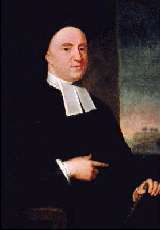
Born: March 12, 1685, near Dysert Castle, Ireland
Died: January 14, 1753, in Oxford, England
George Berkeley was a philosopher who conceived of a universe composed solely of minds and their contents. His philosophies influenced thinkers such as Samuel Johnson.
He was the oldest son of William Berkeley, a gentleman and commissioned officer, and was educated at Kilkenny College from 1696 to 1700. He then attended Trinity College, Oxford, from 1700 to 1704, where he graduated with a bachelor of arts degree. He was elected fellow of Trinity College in 1707, a post that he held for the next seventeen years as librarian, junior dean, and lecturer in divinity, Greek and Hebrew.
In 1709, he published An Essay Towards a New Theory of Vision, an essay on psychology that was well received. That same year, he was made a deacon. The following year he was ordained as a priest. In 1710, Berkeley wrote Principles of Human Knowledge. This work examined how people perceive and imagine things. Not as well-received as his first work, it created a controversy as the work of a madman.
Berkeley expressed the notion that nothing exists in the human mind except for ideas, sensations and perceptions. Influenced by the writings of empiricist John Locke and Nicolas Malebranche's Continental Skepticism, Berkeley drew this conclusion from the empirical theory that knowledge comes from perception.
He was popular among the intellectual crowd in London, including Jonathan Swift, Sir Richard Steele, Alexander Pope, and Joseph Addison. He worked as a chaplain in the Sicilian embassy from 1713 to 1714. He became a tutor to George Ashe, son of Bishop of Clogher, from 1716 to 1720.
Berkeley proposed systems of education and conversion for the native Bermudians. After marrying Anne Foster in 1728, he sailed to Newport, Rhode Island, where he waited for parliament to provide the finances to establish schools in Bermuda. Parliament reneged on the earlier offer.
The Berkeleys returned to England in 1731. Three years later, he published Alciphron, a defense of religion. He was consecrated Bishop of Cloyne in Dublin in 1734. However, with his active social life and six children, he stepped down from his clerical duties in 1752, and moved to Oxford, where two of his children were studying. Berkeley died in 1753 and was buried in Christ Church Chapel.